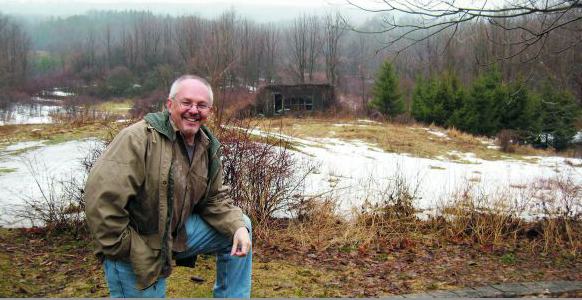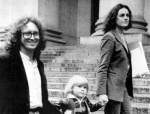[soundcloud url=”https://api.soundcloud.com/tracks/123248369″ params=”color=ff6600&auto_play=false&show_artwork=true” width=”100%” height=”166″ iframe=”true” /]
Videos by Rare
William Paul Young, author of “The Shack,” joins Kurt Wallace in a series of interviews to discuss aspects of the book that has sold over 18 million copies worldwide.
In part 3 of this interview, “Unreal world vs. the real world,” Paul talks about getting lost in religion and the healing that took place in the unlearning of his mental mythologies around God. In conjunction, he explains the meaning behind the moment in the book where the main character talks about going back to the “Unreal world” — his normal life.
Listen to Part 1: Dogma of religion challenged
Listen to Part 2: An unexpected shared language
Kurt Wallace for Rare: This is the next in a series of conversations with William Paul Young, author of The Shack. To hear more, please see the links below.
How difficult was it, for you, in terms of writing this book and revealing yourself and revealing what you had to deal with in the healing process?
William Paul Young: It wasn’t hard because I have no secrets. By the time I, you know, I made it through my eleven years. I have no secrets in my life. There is nothing that my family — my wife Kim or my kids or my friends don’t know. I just don’t have any secrets, and I didn’t know the whole world was going to be reading this thing, so, you know, I made my fifteen copies –gave six to the kids and Kim got a copy and a couple cousins and then the rest of my friends. And that was the end of it as far as anything that I considered, so, I mean, it’s not that it isn’t tender and it isn’t emotional, and it is. A lot of things in terms of our losses are tender but they lose the edge of their ability to continue to hurt you. Somehow they get wrapped up in God’s grace and the very things that were losses to us, somehow become icons and monuments of grace, but they don’t lose that tenderness, which is part of being human and a lot of us have locked ourselves away from our emotional worlds and we made vows and agreements never to feel things anymore. It’s God’s intention for us to become fully human again. And that’s what I’m trying to describe is — let me tell you about becoming human, for me, because I’ve gotten lost inside the performance stuff and the religious stuff, because I was so damaged and I have a long ways to go. It took a long time for me to become a child. And it took a long time to destroy the mythologies that existed in my own mind and heart about the character and nature of God as well as who I was. So, you know, I’m beyond grateful and thankful for being able to participate.
Kurt Wallace for Rare: The idea that we have to unlearn so many things in order to be free is, I think, a very important concept in an experience that I have gone through as well. In the book, you talk about — Mackenzie — has had his experience/relationship with God. And he leaves The Shack, and he talks about going into the unreal world — that statement, the unreal world — versus the real world, where I’ve often, personally, said this: When I go out there in the world, I’m out there, and the message is, “You’re not okay. You’re not okay — you will never be okay. You have to buy this product. You have to become this size. You have to look like this. You have to act like that, feel this way. Take this medication — whatever it is, to be okay.” And the world out there, tells us, that we’re not okay.
William Paul Young: The unreal world is the world of the “I am not’s.” I am not skinny enough, I am not beautiful enough, I am not smart enough. The unreal world is the world of the I am not’s. The real world is the “I am.” And you can’t have an “I am not,” unless there is a deeper “I am.” And that’s the journey we are on. And God is intending for us to learn how to agree with God about the truth of our being.
And we are so used to the lies in our lives and the “I am not’s.” And I’m borrowing that phrase from Baxter Krueger who wrote “The Shack Revisited,” but we’re so used to the “I am not’s” that we think it’s real. We think that the lies we believe are the real world. And you’re right; it’s embedded in everything, all these lies. So, it takes us time. And the kindness of God is He has a respect for the fact that we are human creations and our ability to choose and participate, even in our own healing, matters. God’s not going to heal us apart from our ability to choose to move through that process.
Related articles
- An unexpected shared language, by Wm. Paul Young’s “The Shack” (rare.go-vip.net)
- Dogma of religion challenged by Wm. Paul Young’s “The Shack” (rare.go-vip.net)




2 Comments
Leave a Reply2 Pings & Trackbacks
Pingback:Freedom from self-deception, by Wm Paul Young’s “The Shack” | Rare
Pingback:The process of surrender, explained by Wm Paul Young’s “The Shack” | Rare